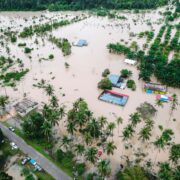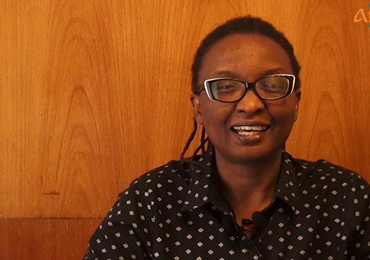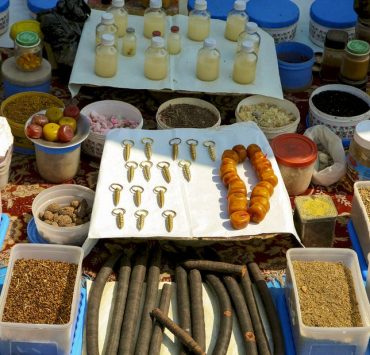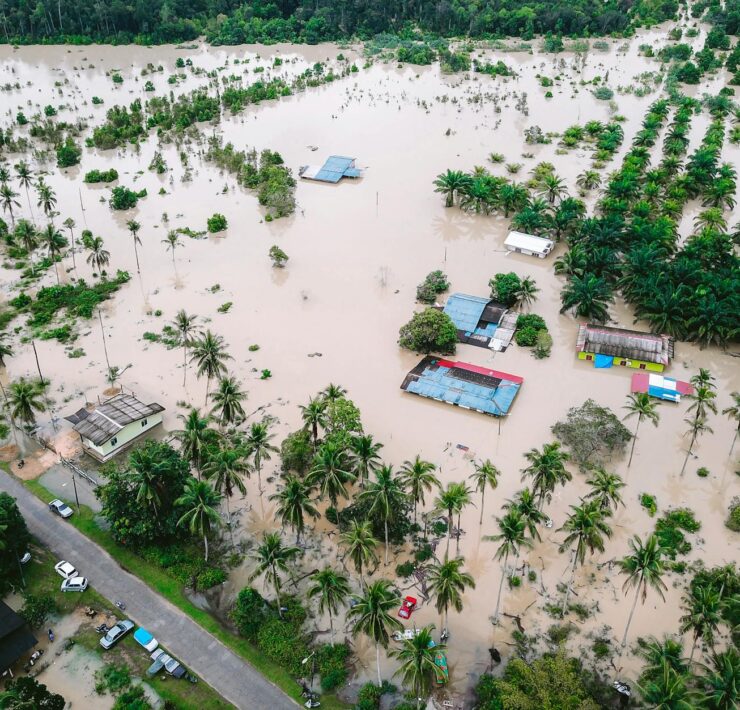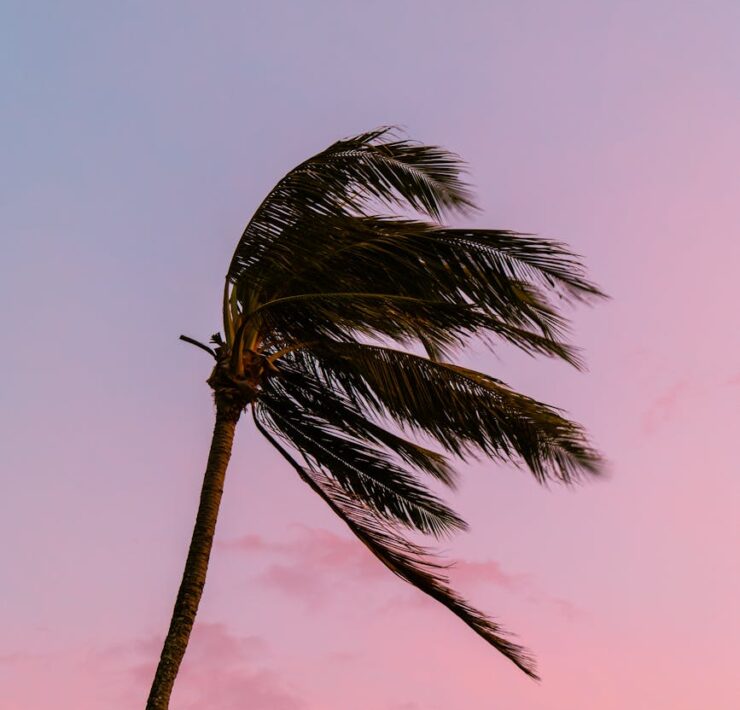Ruaka Town
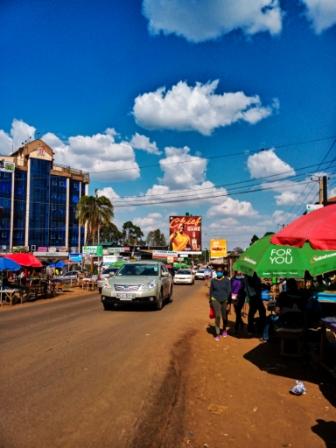
Samuel Phillips is a writer, graphic designer, photographer, songwriter, singer…
LIFE IN THE CITY OF GOD
Movements of persons over vast spaces has been with mankind from the very beginning of time. It’s not a new concept or discovery when people in this modern age call themselves nomads, backpackers, travelers, or whatever names fit the lifestyles of those who find joy in moving from one place to the other, even though others try to undermine such things as irresponsible. In my view, such undermining is nothing but the definition from those who love the box that the world system created and anyone who tries to get out of that box is labeled irresponsible. For me, it’s a beautiful thing to be able to move around over vast spaces, whenever it’s possible to do so.
I personally love traveling long distances and also I am passionate about moving around like a nomad. But in my case, I prefer the word pilgrim to the word nomad. Nomads, as used traditionally, move around for the sake of finding pasture for their animals, but for the modern day nomad, it’s about the fun of traveling and seeing new places, but pilgrims move because such movements are part of their spiritual journey towards light and emancipation. In this article, I may not give you many reasons why I love the lifestyle of a pilgrim, even though I have many, but as a photographer, writer, publisher, song artiste, creative designer and everything else that comes with being blessed with many creative talents, it just fits the purpose that, to fully write and capture accurately the lifestyle of a people or a locality, it’s best to live and experience them right in the place where they have their life day to day. And besides, why stick yourself in just one location for a long part of your life when you can actually move around and enjoy all that life can give and show you in the other places? It’s just good to be a nomad or in my case, a pilgrim and no law says you should not. So why not?
Ruaka town
Moving with my family from the coastal county of Mombasa where we had stayed for about a year, to Ruaka in Kiambu county, was one of those movements you make not because you just love being a nomad, but because you know that the divine hands steering you as a pilgrim on a journey of light clearly moved you there. Moving to Ruaka is also like one of those movements you make while watching out for whether it’s going to be interesting or not.
Ruaka town, tucked in the borders of Kiambu county and Nairobi county, is one town you will easily call a “glorified village” in many ways. Well, that’s my opinion though and I will try and give a few reasons why i said so.
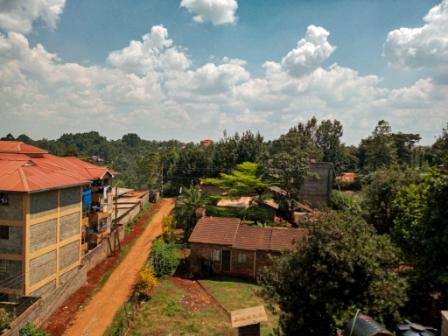
When we first moved in to Ruaka from Mombasa, one of the first things that drew my attention was the cool, fresh and green environment with lots of fresh smelling breeze that could easily get you very cold in a moment, especially when you are still trying to re-engineer your body from the more hot and humid Mombasa climate. So it was a very good sign for me on the first day that I was going to enjoy Ruaka town. I somehow love cold weather more than heat.
The apartment we rented was on the fifth floor of the building, facing the sunrise. And as a photographer, nothing makes me more happy than seeing and capturing the beautiful early morning life giver called sun. So sunrise for me was always creative and blessed from the height of our apartment which towers over almost all the surrounding building. The wind and cold from that height was also very beautiful and quite picturesque for me. And not to talk about the many animals you hear around you every time of the day. For like I had called Ruaka a “glorified village”, one of my reasons is the many cows, goats, donkeys and chickens you see around. Meaning that milk, meat and vegetables were much cheaper and much more organic and non-GMO than you would get in maybe Nairobi shops. And did I mention that you can also get these farm produce in small measures, which can really be very helpful when your wallet is not saying too much. So living in Ruaka is such a good connection to natural vegetations, vegetables and fresh fruits.
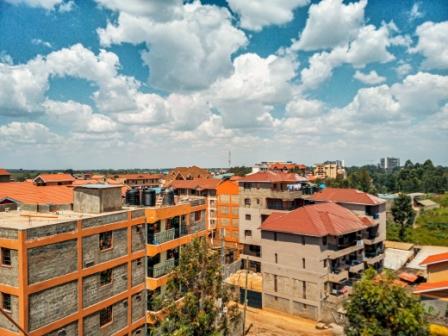
I can’t speak about Ruaka quite accurately if I do not talk about the people living in that community. I believe Ruaka is a Kikuyu community, so you hear more of the people speaking Kikuyu than Swahili the national language. So imagine me going to the shops to buy something without my wife who at least understands a bit of Kikuyu. I remember a day when I went to get some milled Sorghum and Millet from one of the local sellers close to the house. I asked her about the items in English and she clearly told me in English that she doesn’t have them. But looking at her table, I saw buckets of the very grounded Sorghum and Millet that I had asked for. So I showed her the local name of the items in the paper my wife had written for me and she instantly said she has them. I was not really surprised but quite amused about how being locally connected to the life of the community can be very important. And did I mention that the inner roads in Ruaka are very narrow, earthen and quite red? Narrow to the point that two vehicles may find it very hard to pass each other side by side. I didn’t need anyone to tell me that the size of the inner roads is like that because the colonialists who were very active in this region back in the day never thought Afrikans were going to rise to the point where they would own cars. Back in the days, the narrow roads were all that donkeys and carts needed to move around. But don’t ask me why the inner roads still carry the insignia of the colonial days. I have no answer for you right now, maybe another day when I find out too. Or better still, you can share the answer in the comments section below.
Community life
Ruaka for me, is one place where you still clearly see the community lifestyle that Afrika is known for. There is a lot of middle-class-ism going on in Kenya and even in many nations of Afrika. And I am not saying it’s a bad thing, but that when we lose our Afrikan heritage of communal brotherhood for any form or forms of “isms”, then we are losing our true identity as brothers. In Ruaka, you still see humans (deliberate about the word humans) talk to each other on the streets, street corners, people laughing over whatever it is they are eating or drinking as against the mind your business attitude that middle-class-ism has created. And for sure, kids still play around in the natural earth and are very organic and carefree in their interaction with microbes of the earth. And that means, body immunity is high in such areas where there are lots of natural foods, fruits and clean air. So for me, Ruaka is a place you may want to spend some time and enjoy some human and nature relationship. Talking about the carefree life of children in Ruaka, one afternoon, my wife and I were going to get some items from the shops. As we walked along one of the inner roads, we saw a baby of maybe one year and a few months old walking past us in her pampers with no other clothes on, she was going down the road we had just come from. My wife greeted her in Swahili and the tiny woman actually responded with confidence and walked on towards a shop down the road. No adult was with her and we were concerned about that. So we asked a woman seated close by about the baby and from the way she started laughing at our concern, we knew that either she was the mother of the baby or it’s a common thing for children to walk around in the community, because they are actually safe to do so. That really reminded me of the old adage that says “A child is the responsibility of the entire community.”
Wrapped in a cloud
I remembered a day I was standing on the balcony watching the sky and the heavy white cloud dance that was coming towards my direction from the east. One minute I could see the distant buildings ahead of me and the next, all was white and hidden in the white clouds. I signaled for my wife to come see the movie that nature was showing and she came to join me on the balcony. Within a few more seconds, the white cloud was all around us and you could smell the heavy and sharp smell of ice and water. The cloud literally went through the open door and windows into our sitting room. The feeling was out of this world and for a moment the entire house was smelling of cloud and water. This cloud experience for me was like a baptism into some spiritual realities. And did I mentioned that Ruaka is actually called the city of God? About the name city of God, I cannot tell you exactly why it is called that, but somehow we saw on this big signboard on the main road the name “Ruaka the city of God.” And coupled with being a pilgrim who knows that nothing in our lives are coincidences, Ruaka as the city of God is real for us.
You need to be here even as we make plans to do a pilgrimage to another part of the continent.
What's Your Reaction?
Samuel Phillips is a writer, graphic designer, photographer, songwriter, singer and a lover of God. As an Afrikan content creator, he is passionate about creating a better image and positive narrative about Afrika and Afrikans. He is a true Afrikan who believes that the true potential of Afrika and Afrikans can manifest through God and accurate collaborations between Afrikans. Afrika is the land of kings, emperors, original wisdom, ancient civilizations, great men and women and not some road-side-aid-begging poor third world continent that the world finds joy in undermining.








